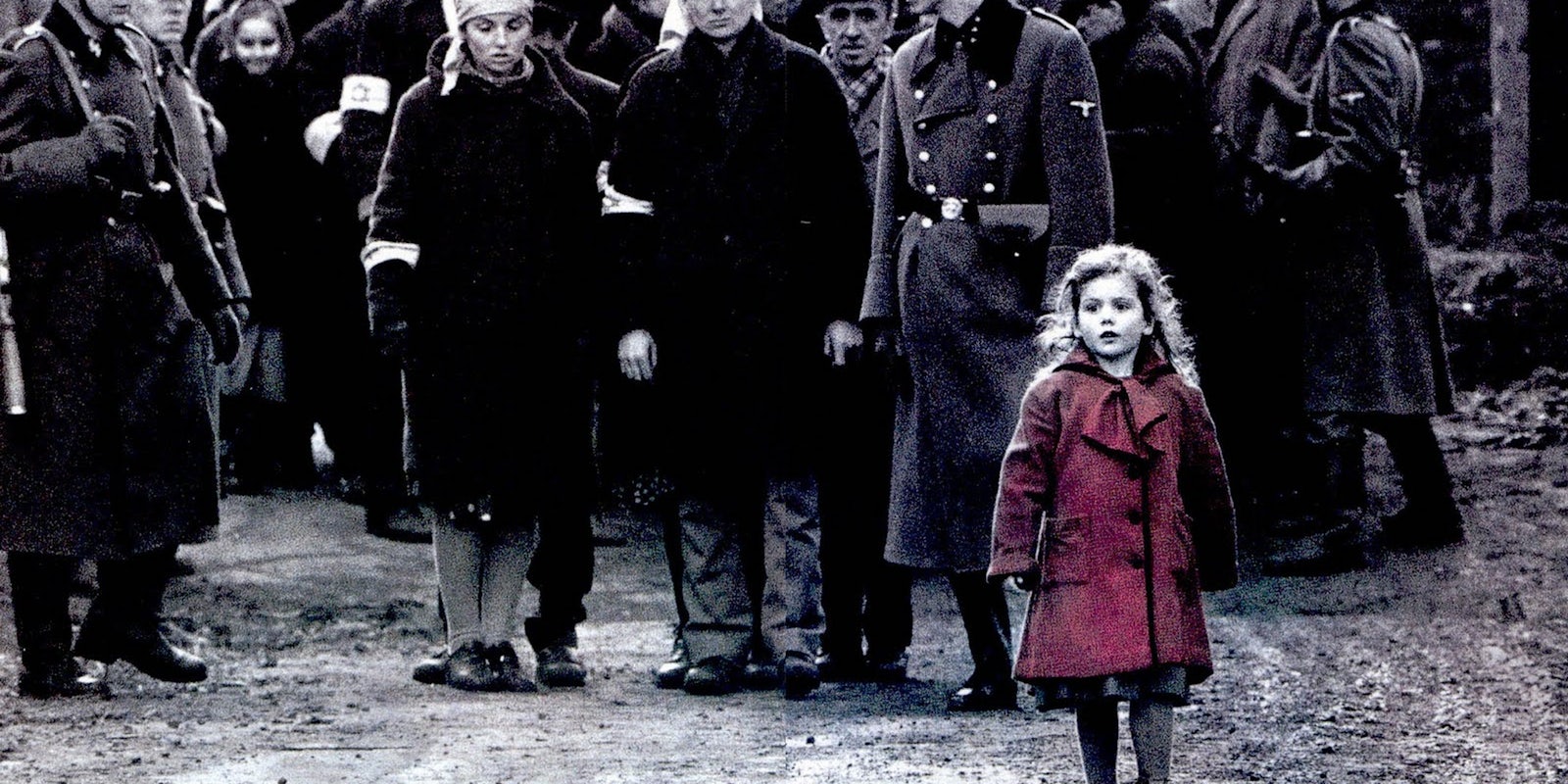BY J.E. REICH
Between the years 1939-1945, a German industrialist named Oskar Schindler saved the lives of over 1,000 of his Jewish employees from imminent death at the hands of the Nazis. He was a real person. The people he saved were real people, who gave birth to children, who gave birth to children. Oskar Schindler did not only save over 1,000 Jews: He saved millions for generations to come.
This living history is what Slate writer Julia Turner forgot when she decided to host a Schindler’s List viewing party, complete with tacos, anecdotes about spicy chicken appetizers, and equations of the party to an “ambitious book club.” Oh, and don’t forget the jokes about bringing “atrocity chips” for snacking while watching.
In her essay, Turner describes her lack of motivation to watch “difficult movies,” i.e., movies that deal with painful, dark, or disturbing content. In lieu of this, she decides to conduct an experiment: to host a viewing party for Schindler’s List with some of her fellow Slate culture desk colleagues, and write up her observations. For your entertainment, here are some of Turner’s (other) excerpted conclusions on the matter:
[T]here was a sense of grim determination and some wan jokes about what appetizers best complement an evening of atrocity. (Atrocity chips?) … It was fascinating to finally see the movie after all these years. It’s a lot more…not more fun, but more Hollywood than I’d expected. There are sexy dames in silk peignoirs and sultry Nazi nightclub numbers. … Despite Spielberg’s antics, the screening was subdued. We took a break for tacos about 80 minutes in; no one talked much, apart from trying to distinguish the spicy chicken from the extra spicy.
Turner makes no direct indication in the entirety of her article that she is aware that Schindler’s List was based on a series of historical events; rather, she seems to articulate the movie as a fictional story inspired by the Holocaust as a whole, and thusly put to print. This makes her commentary on sexy dames and Nazi nightclub numbers sprinkled with Hollywood tinsel all the more distasteful.
I am not arguing that Turner herself is at fault for this perception. I’m sure she knows that Schindler’s List is based on a true story. Rather, it is the disassociation of events that were set in the realm of the real from their simulation on screen. Turner’s article represents human disconnect.
More than three decades ago, the French philosopher Jean Baudrillard theorized about human interaction with symbols and signs in his treatise “Simulacra and Simulation.” In his text, Baudrillard expounds upon the concept of the simulacra (a copy with a reference point) and the simulation (a copy without reference, a purely artificial object).
In the case of Schindler’s List, the film is a simulacra, a replicated object, or a replicated narrative brought to screen. Translated through the lens of Turner’s viewing (and subsequent essay), the film loses its initial reference point, and simultaneously its place in history. What was once a piece made in homage to a particular set of people facing the trials and tribulations of a set of particular horrific events—ones that helped to coin the term “lest we forget”—is ultimately rendered an artifact of mere entertainment. As Baudrillard says, “It is no longer a question of imitation, nor duplication, nor even parody. It is a question of substituting the signs of the real for the real.”
So rather than empathizing with the experiences of others, characters who represent people who once lived, Turner focuses on how “uncomfortable” her guests were, or how one party-goer was afraid of dozing off. It is more than a repudiation of the real: It is wiping it away from consciousness entirely.
It is interesting to note that the basic principles behind the construction of the simulacra and the simulation have been applied by other cultural theorists and philosophers to the advent of the Internet. It is no secret that some have purported a link between social media and feelings of loss of satisfaction, loneliness, isolation, and an inverse effect on personal well-being. Also prominent is the online disinhibition effect, which can cause dissociative anonymity, asynchronicity, and dissociative imagination, among other things.
In effect, all of these factors disrupt our ability to distinguish the difference between reality/”real time” and reality within the bounds of the Internet, which is similar to Baudrillard’s argument that we have lost the ability to distinguish between the real and the simulated in the postmodern age. Turner screened a piece of history through her Internet, into her living room, for the purposes of consumption in a reality of her own making, a reality in which the principles of reality, of history, did not apply.
As the granddaughter of long-deceased Holocaust refugees, movies like Schindler’s List, or documentaries like the epic, seminal Shoah were—and continue to be—tools of education and the dissemination of a kind of legacy at their root. For those who did not have the means to fully understand the magnanimity of the Holocaust, or its generational reverberations, media like this gives us the tools to digest and ruminate. This, of course, stems far beyond the Holocaust—from Darfur to Rwanda to the American South, and farther back yet in the bloodied past.
Though these can be regarded as simulacra in the vein of Baudrillard, they continue to have a referential point, and an important one at that.
It is those like Turner who abate these references, who opt to speak of a “Hollywood glamour,” as she does when talking about Schindler’s List, that can create a real danger. It becomes less about the reality than her detached experience of it. We must warn ourselves, especially now, from that dissociation from catastrophic events and cling to our living history in order to remind us of our own humanity—and what happens when we lose sight of it.
Photo via Lisa Thatcher/Wordpress


